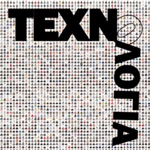Art Davos 2023: culture programme includes works focused on the patriarchy and climate change, Gareth Harris, δημοσίευση The Art Newspaper [17/1/2023]

The world’s wealthiest citizens descending on the Swiss ski town of Davos for the annual World Economic Forum this week can also take in artworks that focus on “technology, the imperatives of climate change, gender equality and the global refugee crisis”, says the programme curator.
Joseph Fowler, head of arts and culture at the World Economic Forum, has selected works by artists and photographers including New York-based Sarah Cameron Sunde and the Turkish-US new media artist Refik Anadol.
Sunde’s project 36.5 / A Durational Performance with the Sea, is “an artistic reflection upon the fragility and vulnerability of ourselves, as well as our cities and urban environments in the face of extreme weather events, climate crisis and rising sea levels”, Fowler says in a statement published in partnership with Forbes.
The series of nine site-specific participatory performance works and video works began with “an impulsive poetic gesture in response to Hurricane Sandy’s impact on New York City [in 2012]—standing in water for 12 hours and 48 minutes while the tide rose and fell on her body,” says a statement on Sunde’s website. The artist filmed other 36.5 tidal works in Mexico, San Francisco, The Netherlands, and Bangladesh.
Anadol’s Machine Hallucinations—Coral Dreams (2021) was a talking point during Art Basel Miami Beach in 2021. His work, shown on the beach, was launched as part of an exhibition organised by the NFT platform Aorist. “Anadol and his team collected nature-theme focused data, using 1,742,772 images of coral from publicly available social media platforms.”
Inspired again by the deterioration of the coral reefs, Anadol has created a new site-specific piece to be unveiled at Davos called Artificial Realities: Coral, based on approximately a billion images of coral. The work, a large “data sculpture”, aims to use draw on the Metaverse and blockchain economies to alleviate global climate change issues, says Fowler.
“What is particularly fascinating about Anadol’s work is how it bends our perceptions and provides new ways of interpreting data, as well as alternative ways of seeing and thinking about form, colour, shape and movement,” Fowler adds.
Η συνέχεια εδώ.





